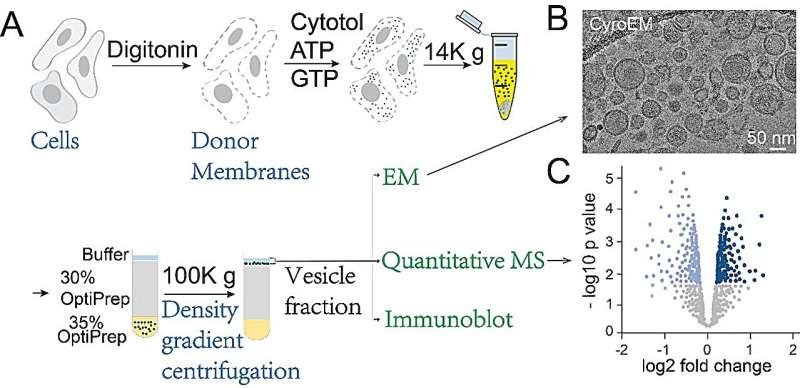The Fight Against Group B Streptococcus in Nigeria, 2024
Table of Contents
- Introduction: Group B Streptococcus
- The Burden of Group B Streptococcus
- Collaborating Across Continents
- Implications for Infant Health
- The Way Forward
- Conclusion
Introduction: Group B Streptococcus
Infant mortality persists as a critical issue in Nigeria, with thousands of newborns falling victim to preventable infections annually. One of the significant contributors to this distressing statistic is Group B Streptococcus (GBS), a bacterium notorious for its severe impact on infants. In response to this public health crisis, researchers have initiated a pioneering study aimed at documenting the prevalence of GBS and devising novel approaches for its prevention and management. This article delves into the revelations of this research initiative and their potential ramifications for mitigating infant mortality rates in Nigeria.

https://www.futurity.org/nigeria-gbs-infant-mortality-1526012-2/
Nigeria grapples with a persistent challenge of infant mortality, with numerous babies succumbing to avoidable infections every year. Among these infections, Group B Streptococcus (GBS) stands out as a particularly perilous threat to newborns. In an endeavor to tackle this pressing public health issue, researchers have undertaken a groundbreaking study to examine the prevalence of Group B Streptococcus and explore innovative avenues for its prevention and treatment. This article sheds light on the discoveries stemming from this research endeavor and their implications for stemming the tide of infant mortality in Nigeria.
Despite advancements in healthcare, Nigeria continues to witness a significant number of infant deaths caused by preventable infections. Group B Streptococcus (GBS) emerges as a notable culprit in this grim scenario, inflicting devastating consequences on newborns. In response to this ongoing public health challenge, researchers have initiated a pioneering study aimed at elucidating the prevalence of Group B Streptococcus and devising novel strategies for its prevention and treatment. This article delves into the findings of this research effort and their potential to alleviate the burden of infant mortality in Nigeria.
Infant mortality remains a poignant issue in Nigeria, with a staggering number of babies succumbing to preventable infections annually. Among the pathogens responsible for this tragic toll is Group B Streptococcus (GBS), known for its detrimental effects on newborns. In a bid to confront this public health crisis, researchers have launched a pioneering study to assess the prevalence of GBS and develop novel strategies for its prevention and treatment. This article investigates the findings of this research endeavor and their potential impact on reducing infant mortality rates in Nigeria.
The Burden of Group B Streptococcus
Group B Streptococcus (GBS) represents a formidable menace to maternal and child health across the globe. Its potential to instigate a range of complications during pregnancy and childbirth, such as stillbirth, premature birth, and neonatal sepsis, underscores the urgency of understanding and addressing this bacterium. Despite its widespread impact, Group B Streptococcus remains a subject of limited research and attention, particularly in low- and middle-income countries like Nigeria.
In Nigeria, where maternal and infant mortality rates are already unacceptably high, the threat posed by GBS adds another layer of complexity to an already challenging healthcare landscape. The lack of comprehensive data on the prevalence and impact of GBS in Nigeria is a significant barrier to effective prevention and management strategies. Without a clear understanding of the burden of GBS, healthcare providers struggle to implement targeted interventions and allocate resources appropriately.
One of the primary challenges in combating Group B Streptococcus in Nigeria is the limited access to screening and preventive measures. Unlike in some high-income countries where universal screening for GBS during pregnancy is standard practice, such resources are often unavailable or inaccessible in many parts of Nigeria. This leaves pregnant women and their infants vulnerable to GBS-related complications, as infections can go undetected and untreated until it is too late.
Furthermore, the lack of awareness and education about Group B Streptococcus among healthcare providers and the general population exacerbates the problem. Many pregnant women may not be aware of the risks associated with GBS or the importance of seeking timely medical care. Likewise, healthcare providers may not be adequately trained to recognize the symptoms of GBS or know how to manage cases effectively.
Addressing the burden of GBS in Nigeria requires a multifaceted approach that encompasses both preventive and therapeutic strategies. This includes increasing access to screening and treatment services for pregnant women, as well as educating healthcare providers and the public about the importance of early detection and intervention. Strengthening laboratory capacity to diagnose GBS infections and improving the availability of antibiotics to treat affected individuals are also essential components of any comprehensive GBS control program.
Furthermore, efforts to address the underlying determinants of maternal and child health in Nigeria, such as poverty, inadequate healthcare infrastructure, and limited access to essential services, are crucial for reducing the overall burden of Group B Streptococcus. By investing in maternal and child health initiatives and strengthening healthcare systems, Nigeria can mitigate the impact of GBS and improve outcomes for mothers and infants nationwide.
Setting the Stage for Research
The impetus for investigating the prevalence of Group B Streptococcus (GBS) in Nigeria stemmed from the observations of Nigerian physician Dr. Nubwa Medugu. Recognizing the dearth of data on this significant pathogen in her homeland, Dr. Medugu embarked on a mission to delve into the matter. She hypothesized that deficiencies in active surveillance and laboratory methods might be impeding the accurate detection of Group B Streptococcus cases within Nigeria’s healthcare system. Motivated by her commitment to improving maternal and child health outcomes, Dr. Medugu initiated a comprehensive research study as part of her residency program.
Dr. Medugu’s study aimed to fill the critical gap in knowledge regarding Group B Streptococcus prevalence and its impact on maternal and child health in Nigeria. Through meticulous data collection and analysis, she sought to shed light on the true burden of GBS and its implications for clinical practice and public health policy. Her research involved collaborating with healthcare facilities across various regions of Nigeria to gather information on GBS incidence, risk factors, and outcomes among pregnant women and newborns.
The findings of Dr. Medugu’s study provided valuable insights into the epidemiology of Group B Streptococcus in Nigeria. They revealed significant regional variations in GBS prevalence and underscored the importance of targeted screening and prevention efforts. Dr. Medugu’s research also highlighted the challenges faced by healthcare providers in diagnosing and managing GBS infections, particularly in resource-limited settings. Armed with this knowledge, policymakers and healthcare stakeholders were better equipped to develop evidence-based strategies for combating GBS and improving maternal and child health outcomes nationwide.
In addition to her research endeavors, Dr. Medugu played a pivotal role in raising awareness about Group B Streptococcus among her colleagues and the wider community. Through seminars, workshops, and educational campaigns, she emphasized the importance of early detection and intervention in preventing GBS-related complications. By empowering healthcare providers with the knowledge and tools needed to address GBS effectively, Dr. Medugu contributed to strengthening Nigeria’s healthcare system and safeguarding the well-being of mothers and infants.
Dr. Medugu’s pioneering work in investigating the prevalence of Group B Streptococcus in Nigeria serves as a testament to the power of local initiatives in addressing global health challenges. Her dedication to advancing maternal and child health through research and advocacy exemplifies the spirit of leadership and innovation needed to confront complex public health issues. As Nigeria continues its efforts to improve healthcare delivery and reduce maternal and infant mortality, Dr. Medugu’s contributions will undoubtedly serve as a guiding light in the ongoing fight against GBS and other infectious diseases.
Collaborating Across Continents
To conduct the study, Dr. Medugu collaborated with Professor Shannon Manning, a renowned expert in microbiology and molecular genetics at Michigan State University. Despite the logistical challenges of conducting research across continents, the partnership between Dr. Medugu and Professor Manning proved to be fruitful. Dr. Medugu collected samples from 500 women and infants at four hospitals in Nigeria, while Professor Manning supervised the laboratory analysis at Michigan State University.
The results of the study were eye-opening. Dr. Medugu’s research revealed that 34 percent of mothers and 19 percent of their newborns were colonized with Group B Streptococcus, with approximately 1 out of 500 babies developing GBS-related disease. These findings shed light on the high rates of Group B Streptococcus colonization and transmission in Nigeria, highlighting the urgent need for preventive measures and intervention strategies.
Implications for Infant Health
The implications of this research are profound. In a country where access to healthcare resources is limited, the identification of Group B Streptococcus as a significant contributor to infant mortality underscores the importance of implementing infection prevention and control measures. Dr. Medugu’s study has paved the way for the development of targeted interventions aimed at reducing the burden of GBS infections in Nigeria.
The Way Forward
Moving forward, Dr. Medugu and her colleagues are advocating for the implementation of routine screening and preventive measures for Group B Streptococcus infections in Nigerian hospitals. By raising awareness and providing training on hand hygiene and infection control practices, they aim to empower healthcare providers to protect newborns from GBS-related complications. Additionally, they are exploring the potential use of antibiotics to prevent neonatal GBS infections, a strategy that has proven successful in other countries.

Conclusion
The research conducted by Dr. Nubwa Medugu and Professor Shannon Manning has shed light on the prevalence of Group B Streptococcus in Nigeria and its impact on infant health. By uncovering the baseline rates of Group B Streptococcus colonization and transmission, this study has provided valuable insights into the dynamics of GBS infections in the country. Armed with this knowledge, healthcare professionals can work towards implementing effective strategies to reduce the burden of GBS-related diseases and save the lives of countless Nigerian newborns. Through collaboration, innovation, and dedication, we can turn the tide against infant mortality and ensure a brighter future for the next generation.













Post Comment